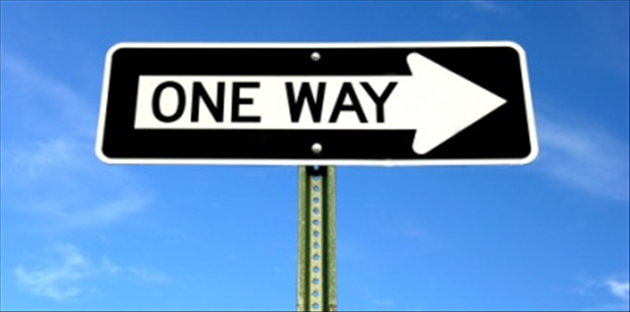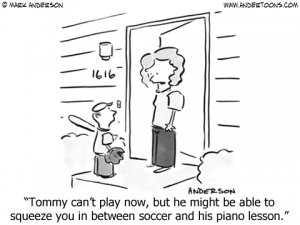Millennials and their Destiny
I have a deep and rich relationship with the Millennial Generation and I’m the better for it.
After 25 years as an entrepreneur I began teaching at Duke University in 2001, just as the oldest of the Millennial Generation were becoming juniors and seniors. I taught there until last year, courses I designed to help Millennial students grow their creative capacities and develop their entrepreneurial instincts. To be successful in these classes we needed to operate at a very personal level, exploring ambitions and fears and exercising young creative and entrepreneurial muscles while they trusted me enough to share their best creative expressions. I engaged in that exploration and guided the creative practice and shared that trust with over 3,000 Millennials.
I was invited to do workshops at over a dozen colleges and universities across the country and at a half dozen high schools from poor rural districts where I actively challenged Millennial students and was able to evaluate their work.
I have mentored a couple dozen young men and women in their creative and entrepreneurial works from every economic and cultural and racial background.
And my three daughters are Millennials, and so are their husbands and friends and my nephews and nieces, and all together they represent the full age range, roughly 15 to 35. They are entrepreneurs and artists and writers and teachers and musicians and parents and makers and corporate execs and students and athletes and even a couple semi-professional ones.
So for a couple of decades I have been continually running a massive qualitative research study with a singular core purpose: I am constantly measuring Millennials’ creative and entrepreneurial interests and actions, evaluating their creative expressions and projects, and monitoring their generative disposition.
It was roughly halfway through those 14 years at Duke that the banking crisis spawned the Great Recession and as a class exercise I challenged my students with the idea that the economy wasn’t recovering because it couldn’t recover because the economic crisis had revealed how systemic the weaknesses in our business fundamentals were; there was no foundation upon which to build back what had been lost.
But that was okay. We didn’t want a recovery, they concluded, we wanted economic renewal. The sort of renewal that occurs when waves of creatively entrepreneurial leadership and talent washes over all our existing institutions while building new businesses to solve our world class problems and discovering new operational models that might lead us closer to accomplishing a sustainable abundance.
It was while I was listening to their considerations of this economic challenge woven with their personal goals for the futures they were eager to build—futures informed more by ‘create advantage’ strategies than previous generations’ inclinations towards ‘take advantage’ strategies—that I was surprised and delighted by an intuitive leap.
I suddenly realized that just as my father’s generation was properly framed by Mr. Brokaw as the Greatest Generation my children’s generation would be known as the First Great Creative Generation.
The Greatest Generation had a destiny, one they didn’t choose for themselves but was thrust upon them: to fight and win what really amounted to two world wars and both at the same time. Then they came back home and created advantage from our wartime manufacturing momentum and furious baby boomer family formation and world economies flat on their behinds to build an economic juggernaut unlike anything the we’ve ever seen, created by as it created the great American Middle Class.
My intuitive leap showed me that the Millennials also have a destiny, one thrust upon them as well: To take on the leadership of renewing our economy and revitalizing our culture so that futures of sustainable abundance in a highly competitive world becomes possible.
It’s a destiny no less daunting and every bit as important.
Once I wrapped my understanding mind around the gift my subconscious mind had delivered, I remembered that whenever my insight to solving a problem or shaping an opportunity occurred to me first as an intuitive insight I must then rationalize it for others. I can’t expect folks to take that intuitive leap with me.
So I set out to find the large historical and cultural forces that were shaping the Millennials, marking them out as different in kind rather than different in degree from previous generations.
I found three such forces right away, and they are very big.
1. The great impediment to creative thinking and entrepreneurial behavior is the status quo. It is so constraining in its power over us because it serves us so well so much of the time—imagine how exhausted you’d be at the end of the day if you had to make fresh decisions each and every time you made one.
The habits and functional fixedness of the status quo keeps us from understanding what is actually occurring around us most of the time; we see only what we expected to see and think only what we have always thought when we attend to the events of our lives.
However Millennials are coming of age at a time when so many of our defining status quos are being radically redefined if not discarded altogether, including one of the most demanding and determined status quos of all.
It’s hard to find a more dominate status quo than the one a culture uses to define, order, and support the creation of the family as the core social and economic unit of a society. And how many other status quos of public policy perspectives and cultural conventions have been built upon this status quo: from the beginning an American family was a male husband/father who provides and a female wife/mother who stays home to care for one or more natural born children.
Two years ago a Pew Research Center study found that 73% of Millennials approve of same sex marriage.
And only 7% of US households meet this traditional definition of family.
There is a handful of other defining status quos that are becoming irrelevant as Millennials come of age. The notion of a long career path within one organization is long gone. The All-American expectation that each generation will achieve a higher standard of living than their parents is questionable. The centuries of highly predictable weather patterns are over, with hundred year floods occurring every four or five years in some places.
I found time and time again that my classes were enlivened by Millennials quick and easy embrace of what hasn’t happened before; it’s natural for them to take the old apart to find new alternatives. There is tremendous benefit that a natural disregard for the status quo brings to creative and entrepreneurial work.
2.The historical force shaping them that is most obvious is their relationship with digital technologies. It’s particularly relevant to consider they are the first generation whose first experiences with digital tech was a playful one; digital devices were their toys before they were their tools. And while many have commented about the disadvantages of an over exposure to digital tech at too young an age—a valid concern—the advantage is a transformative one: when as a child you were given a new toy you got used to it through curious and imaginative exploration, not by the rules and regs, not at first. First you had fun, and having fun doesn’t need rules.
I was 33 when someone sat me down in front of a PC for the first time and taught me a half dozen rules for using it as a word processing machine, and for a decade I allowed my relationship with this machine to be an example of functional fixedness. I was told what it would do for me, I only saw it in that frame, and I followed the rules to get my work done.
Because this generation has their relationship with digital technologies rooted in the playful “Hmmm…I wonder what happens when I do this…” they will often use these tools even more imaginatively, effectively, and powerfully than the engineers and designers imagined.
The leverage the playfully creative use of technology is providing them is unheard of.
3. The students in my classes were not just tolerant; their expressions of love showed shine through previous generations’ prejudices. I don’t know if it is enlightenment—has the work of those previous generations’ struggles for equal justice and human rights finally achieving an important critical mass—or if it is a simple pragmatism—they are the most diverse generation we’ve seen; nearly 43% of American Millennials are non-white, double the percentage in 1980—but I find their care for each other, including ‘the other’, to be a defining characteristic.
I saw this most clearly during the 2008 Presidential primaries and campaign—there were times when the four political leaders garnering most of the media’s attention were Hillary Clinton, Sarah Palin, John McCain, and Barack Obama—and the fact that two women and a black man were being seriously vetted to lead our country wasn’t as important to my students as what these folks were saying.
Millennials aren’t perfect, of course. There is lots of progress that needs to be made. But as I consider the full breadth and depth of experiences I have with them I conclude they have crossed an important line and that Millennials will invite or at least allow everyone in the talent pool in a fashion never permitted before.
And all the research on the topic concludes that a diversity of perspectives and beliefs is extremely valuable when nurturing a creatively entrepreneurial people.
So, Millennials are most creatively adept with technology, more able and even willing to question the status quo, and better prepared to understand how appreciating our common ground humanity frees us to benefit from our particular cultural and personal differences.
All my experience as an entrepreneur and creative professional and all my learning from the hundreds of creativity research projects I have read tells me those three forces together create a dynamic for creative and entrepreneurial greatness.
Perhaps these additional insights into how Millennials are maturing are also relevant to considering them as a creatively entrepreneurial tribe preparing to lead and serve—in fact already leading and serving—our commonwealth.
-They grew up with this lackluster economy as the “New Normal” where the full time jobs that last for decades are quickly being replaced by short-term jobs and part-time gigs; as mentioned in the status quo discussion, they view job security as a historical relic. They have accepted that the days of a clearly defined career path have been replaced by the need to make your way. And they are. I know many who are cobbling together two or three jobs; waiting tables while coaching while helping a friend launch a start-up while paying off student loans while teaching themselves how to code is representative of many mid 20’s to early 30’s Millennials I know.
-They were the most scheduled generation of children ever. Research shows that Millennials’ parents wanted to be parents more than any previous generation and their determination to find every advantage for their children is seen in their invention of a new parental duty we could call Talent manager. As soon as Susie or Michael showed an interest or predisposition towards any activity their parents scheduled them for classes or practices or rehearsals and when added to a full school day with increasing amounts of homework, they are the first generation to have their childhood managed by calendar and clock, 24X7.
My students kept creative journals for our classes and I’ve read hundreds of their insightful riffs on what they gained from so many extracurricular opportunities and what they lost by having their time so tightly scheduled for them. They certainly know how to get the most work accomplished each day, but…
-…What they lost was the opportunity to wonder while they wandered through hours of open ended play, and many weren’t fully aware of that loss until our class helped them discover its nature and significance. As schools and parents were attempted to stuff 60 pounds into a 12 year olds 40 pound sack, the kids never had a chance to be bored coupled with the hours of free time to learn how adept we are at entertaining ourselves through creative and entrepreneurial open ended play.
As an entrepreneur I experience creating a business while learning how to run it in much the same way children experience playing a game while making it up, or making it up as they are playing it. Play also invites their building of aspirational narratives that begin to come true as they recruit others to join them. They learn rapid prototyping when a stick becomes a sword on its way to being a telescope. And strategic nimbleness is needed when the game you and your friends are creating bumps into the one me and my buddies are building and we decide to merge them and play them as one.
I was continually coaching and urging my Millennial students to play, and honestly, it was a challenge for many of them.
-Millennials are coming of age as the Maker Movement began and reached critical mass. The generations’ application of new technologies like 3-D printers to reinvent traditional creative processes has flourished. And most Millennials are media producers.
-They are the most international of generations. Millennials of the On-Line World have united; an idea that was fresh in NYC is played with the next day in Madrid, and that idea might have been inspired by something out of Tokyo. And immersive international educational opportunities abound with 10% of US college students studying overseas each year; perhaps a slightly higher percentage of foreign students enrolled in my classes each semester.
-They are the most anxious generation in 80 years, research reveals. One can imagine that living a highly scheduled life of rushing from one commitment to another at the age of 9 would have that effect.
That anxiousness was easily detectable when I first started teaching Millennial students and it caused me to take a big step back; because of it I didn’t enjoy being in a classroom with them through much of the first semester. Duke students are remarkably ambitious, and to be highly anxious about ones’ ambition is never attractive. Through that lens I tended to be prejudiced against them, at first.
But my wife helped me understand the source of their anxiousness—my wife Marie is a quiet visionary in early childhood development, and my appreciation for open ended play is rooted in hers—and when I understood their anxiousness better I was more capable of seeing it in my students as eagerness and enthusiasm and that helped me challenge my prejudices about Millennials generally.
My love for them now is all the more impressive, to me anyway, when I recall I didn’t like them at first.
When you consider how much the Greatest Generations’ success benefited from the fact that everyone was rooting for them, eager to help them, ready to sacrifice for their accomplishments and did, I wonder why Millennials have so many critics.
Is it that they are such a large cohort?
They are now the largest generation, recently passing the Boomers by about 500,000, and likely to be the largest generation ever when you consider US population and demographic trends. And so maybe their numbers are threatening folks who are not ready to step aside and one reaction is to see Millennials as unworthy.
If that’s it—and yes I have found them to be eager and impatient and anxious as I said—it’s relevanat perhaps that whenever I would ask a classroom of them to redefine what apprenticeships could look like in their worlds, they were quick to grasp the benefit of serving in one with a master.
Of course as in each previous generation individual Millennials are defined more by their unique characteristics than shared generational qualities and experiences.
But I am convinced that those shared qualities and experiences mark them out as different in kind from previous generations, not different in degree, and that this generation is destined to develop and apply their natural born creative genius as no previous generation has in order to renew and revitalize our stagnant economy, to take on the extraordinary world class problems that we face, and to lead us to futures where sustainable abundance is a reachable goal.
I think this generation is just who we need them to be, and I hope to continue to be of service to their efforts when I can.







Mike Wolf
February 7, 2017 at 10:03 pmWhat a Great article Carl. incredible insight into the generation that will be the most important in a very long time